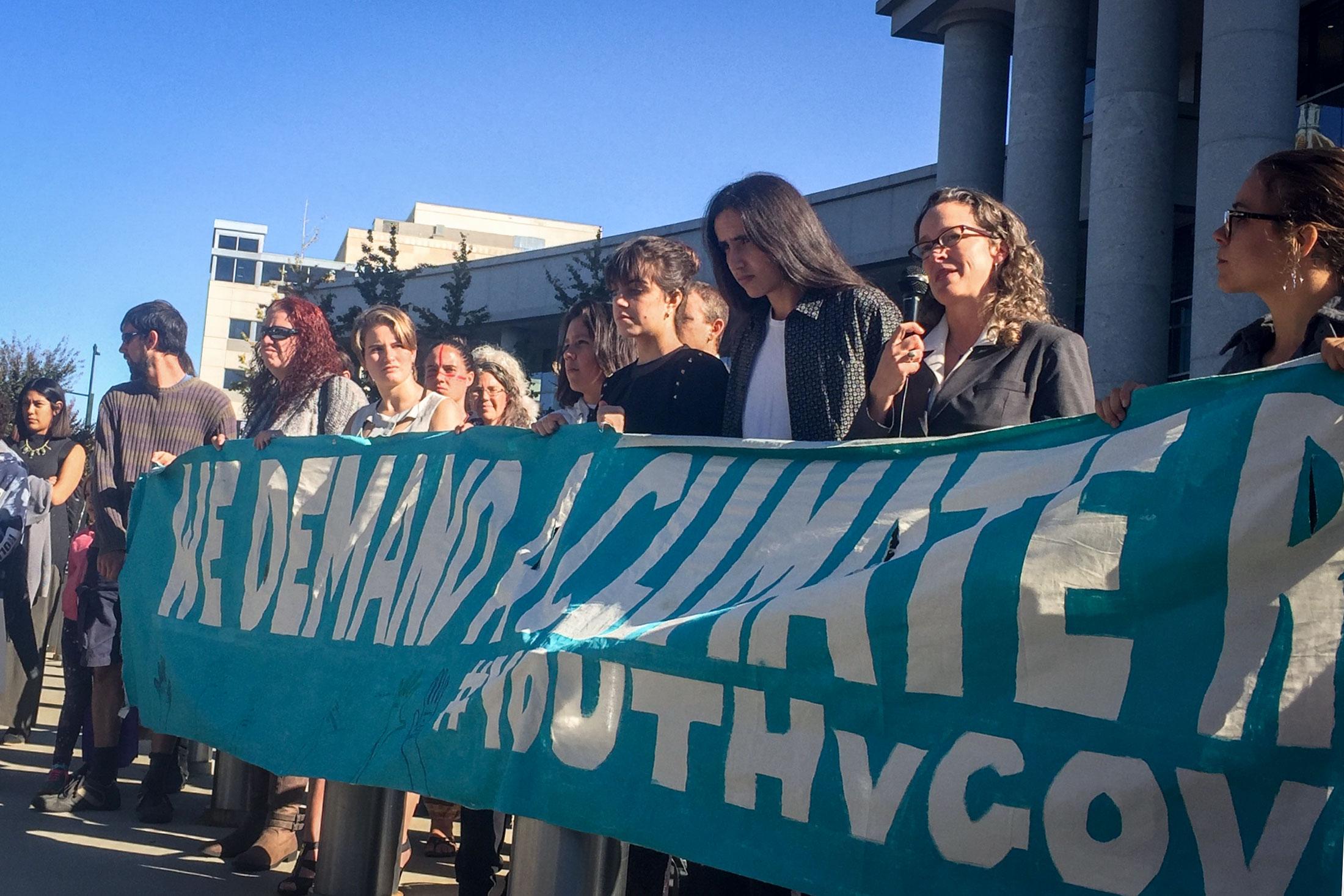

An attorney for six young people who want the state to impose tougher safeguards on the energy industry told Colorado’s Supreme Court that the law requires regulators to protect public health from the hazards of drilling.
The Tuesday hearing before the high court marks the latest development in a lawsuit that’s been moving through the state’s courts for years. Justices heard oral arguments in the high-stakes case but did not say when they would rule.
The teenage Boulder environmental activists, led by Xiuhtezcatl Martinez, filed the suit in 2014. The so-called “Martinez case” seeks to force the Colorado Oil and Gas Conservation Commission to make public health and safety issues the primary priority when deciding on drilling operations.
The COGCC’s state attorney, Colorado Solicitor General Frederick R. Yarger, argued this would place an undue burden both on the regulator and the oil and gas industry — which he said is just one of many aspects of modern life which have some effect on air quality.
“Oil and gas, the industry, in this regard is not unique and should not be treated as such,” Yarger told justices.
State law, Yarger argued, does not allow regulators to adopt a zero-impact standard for health effects.
Attorney Julia Olson, who represents the teenagers, said state law is clear that the oil and gas industry cannot harm public health, safety or welfare in any way.
“There isn’t any discretion to balance human health on one hand and oil and gas development on the other,” she said.
Justices questioned Olson’s interpretation of state statute, noting the COGCC already has to take environmental concerns into account when deciding on new oil and gas developments, including public health concerns.
Should the state Supreme Court side with the plaintiffs, it would significantly change Colorado’s oil and gas debate — giving local governments and activists more power to argue for safety measures and restrictions on where wells can be drilled.
Olson told a gathering of supporters after the hearing that public health needs to be an overriding concern of the commission.
“There is a big difference between a child having asthma and having an increased risk of childhood cancer to protecting wildlife populations,” she said.
The Associated Press contributed to this report.








